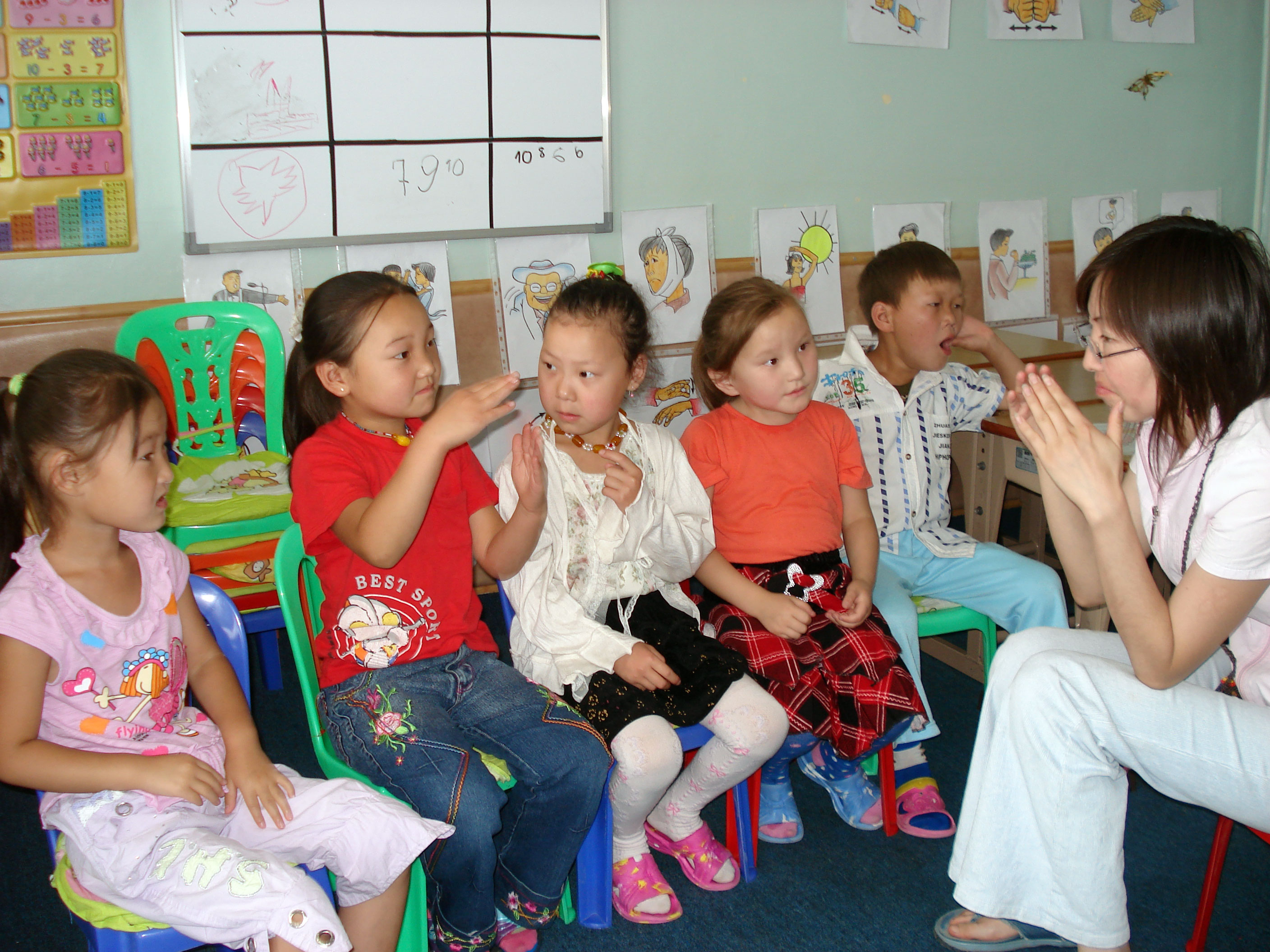Swiss fund kindergarten for deaf in Mongolia

On the street, in the supermarket, at church: the deaf are everywhere in Mongolia yet until recently there was no pre-school education for deaf children.
In 2006 the first kindergarten for the deaf opened in the capital, Ulan Bator, thanks mainly to the Swiss, Hans Jutzi.
After emigrating to Mongolia in 2001, with the intention of staying, Jutzi and his wife, Friedi, had to return to Switzerland unexpectedly only a year later. They had been touched by the plight of the deaf in Mongolia during their months in the country, however. As Jutzi had headed an institution for the deaf in Switzerland, he felt especially drawn to the community and the problems they faced.
The deaf in Mongolia are very often poor and social outcasts, in a country that is itself quite poor. More than 50 per cent of Mongolians are nomadic, with its inhabitants on average living on less than $22 (SFr23.35) a month. Around three per cent of Mongolians are deaf, a high proportion of the population.
“In the countryside deaf children are often used only as workers,” said 64-year-old Jutzi. “If they live in the capital, they at least have a chance of attending the only school for the deaf in the country.”
But there was no money for a kindergarten, and without preschool education, deaf children can suffer socially and mentally delayed development.
So Jutzi set up the Bambarush (teddy bear) project with the support of the former Swiss consul, Markus Dubach, private sponsors and Mongolian experts.
Two local teachers were brought to Switzerland for six months of training. Working together with a team of local teachers, they have since taught more than 40 deaf children at Bambarush.
New plans
The Mongolian education ministry became aware of the project and decided in 2008 to integrate the kindergarten into the public school system and bear its costs. It is currently being extended and is set to become an all-day school as of September 2010.
For the Jutzis and their Mongolian colleagues this is a very gratifying success. But the Jutzis are not ready to rest on their laurels. Neither are they discouraged by bureaucracy or the lack of financial wherewithal. They plan to return to Mongolia and start a new project.
“Our goal is to found an advisory service and training opportunities for the deaf, “ said Jutzi. “Many of those affected do not know their rights, which limits their chances and prospects. The deaf have enormous potential – what they need are chances to fulfill it.”
The Mongolian government, for its part, is interested in extending education for the deaf beyond the confines of Ulan Bator.
“We should also offer institutions for such children living in the countryside,” said Jadamba Myagmar, the education ministry official responsible for special needs children.
Relations between Switzerland and Mongolia date back to the second half of the 1950s, when Zurich company Debrunner established trading relations with the People’s Republic of Mongolia.
Switzerland officially recognised the Democratic Republic of Mongolia on May 20 1964, though contacts between Bern and Ulan Bator remained modest until the socialist period came to an end.
Relations became closer from 1990, when democracy came to Mongolia. Economic contacts remain modest, though the number of Swiss tourists is rising.
Ethnic groups in Mongolia: 90% Mongolians, 10% Kazakhs
1.57 million km2 – Switzerland by comparison is just over 40,000km2.
Swiss colony: 32 persons
Gross domestic product (GDP): $3.16 billion
GDP per person: $1,216.18
Swiss exports: SFr 2.15 million
Swiss imports: SFr 2.29 million
(source: Swiss foreign ministry. Year not specified)
(Adapted from German by Kathleen Peters)

In compliance with the JTI standards
More: SWI swissinfo.ch certified by the Journalism Trust Initiative














You can find an overview of ongoing debates with our journalists here . Please join us!
If you want to start a conversation about a topic raised in this article or want to report factual errors, email us at english@swissinfo.ch.